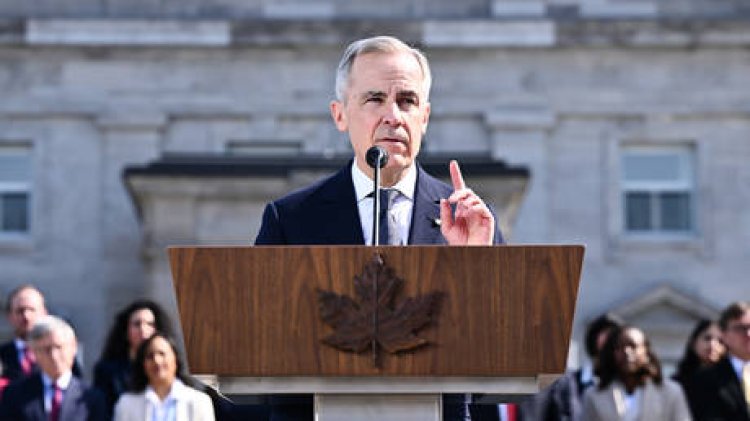PM Declares Canada Will Lead the World
Canadian Prime Minister Mark Carney has expressed strong criticism of US President Donald Trump’s recent tariffs, indicating that Ottawa is prepared to assume the role of global economic leader in Washington's absence. Carney made these statements...

Carney made these statements on Thursday while announcing retaliatory measures in response to Trump’s proposed "reciprocal" tariffs, which include an additional 25% tariff on the Canadian automobile sector. In retaliation, Canada has decided to impose tariffs on all cars and vehicle components imported from the US that do not comply with the USMCA, a key free trade agreement between the US, Canada, and Mexico.
This announcement followed the release of a sweeping set of tariffs by Trump on Wednesday, targeting a broad range of countries with rates between 10% and 49%, which he referred to as “liberation day” aimed at addressing the US's trade imbalance. Carney warned that these actions could “rupture the global economy,” which he noted has already become “fundamentally different today than it was yesterday.”
He remarked, “The system of global trade anchored on the US [is one] that Canada has relied on since the end of the Second World War. A system that, while not perfect, has helped to deliver prosperity for our country for decades is over. Our old relationship of steadily deepening integration with the US is over.”
Describing the situation as a “tragedy” that represents “the new reality,” Carney asserted that Canada is prepared to take up “global economic leadership” in place of the United States. “Canada must be looking elsewhere to expand our trade, to build our economy, and to protect our sovereignty. Canada is ready to take a leadership role in building a coalition of like-minded countries who share our values,” he stated. “And if the United States no longer wants to lead, Canada will.”
Canada has emerged as a focal point in Trump’s critiques of the global trade landscape, with the president alleging that the US has been “subsidizing” Canada by about $200 billion annually. He has frequently suggested that the resolution to their economic differences could be for Canada to become the “cherished” 51st state of the US.
While Canadian officials have categorically dismissed the idea of annexation, public opinion also reflects a strong resistance to it. A recent YouGov poll indicated that approximately 77% of Canadians oppose the notion, with only around 15% supporting a merger with the United States.
Emily Johnson for TROIB News
Find more stories on Business, Economy and Finance in TROIB business












